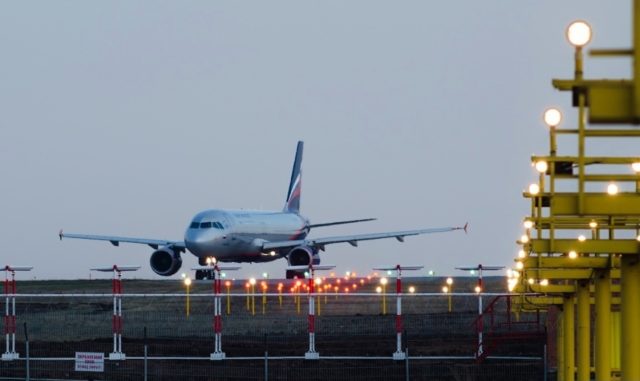
North Caucasians Increasingly Taking Their Lead From Tatarstan
Publication: Eurasia Daily Monitor Volume: 15 Issue: 116
By:

Tomorrow (August 3), a remarkable event is slated to occur: For the first time ever, regularly scheduled civil aviation flights will begin between Kazan, the capital of Tatarstan in the Middle Volga, and Makhachkala, the capital of Dagestan in the North Caucasus. That development is striking for several reasons. First of all, heretofore, 75 percent of all flights in the Russian Federation have had to go through Moscow, up from 30 percent at the end of Soviet times (Idelreal.org, July 23; Afterempire.info, July 30). Second, and perhaps even more importantly, the opening of the Kazan-Makhachkala connection highlights the growing ties between two Muslim regions that the Kremlin has traditionally sought to keep isolated from one another. Finally, this development highlights the increasing interest within the North Caucasus to follow Kazan’s lead in response to Moscow’s policies.
At one level, of course, this is all Moscow’s doing. The Kremlin’s man in Makhachkala, Vladimir Vasiliyev, has appointed numerous officials from Tatarstan—including his own prime minister—to run Dagestan (see EDM, March 13). And not surprisingly, many of them want direct flights home, rather than having to go via Moscow. These Tatarstani “outsiders,” Vladimir Putin and Vasiliyev quite clearly hope, will help pacify Dagestan by keeping political disputes within the limits of the permissible—rather than inadvertently continue to encourage regime opponents to “head into the forests” and take up arms as part of radical militant groups (Svobodnaya Pressa, February 7; Ura.ru, Windowoneurasia2.blogspot.com, February 8).
But if that was Moscow’s intention, its actions have had another consequence. And given Russia’s divide-and-rule approach, the center may not be particularly pleased about it. Instead of responding on their own to what Moscow is doing, ever more people in the North Caucasus are looking to Kazan and the statements of its most prominent officials for guidance. This development could mean Tatarstan is on its way to becoming what it has always hoped to be—the leader of the country’s non-Russians and not just one republic among many. That would give Kazan, and possibly other capitals in the Middle Volga, new clout in Moscow and could fundamentally change center-periphery relations across the Russian Federation.
Ramazan Alpaut, of Radio Svoboda’s IdelReal portal, points out that in the last few months, “politicians of the Middle Volga have been able to go beyond the limits of their traditional information space” on at least three separate occasions to dominate the media discourse not just in their home republics but those of the North Caucasus as well. In that region, he says, their names are now widely mentioned on online social networks; and their policy positions are being employed as a yardstick to measure the public stances of their own political leaders, something unheard of at any point in the past (Idelreal.org, July 25).
The first of these cases involved a speech by Ilshata Aminova in Tatarstan’s State Council in defense of the languages of the peoples of Russia. Her words were welcomed by numerous bloggers across the North Caucasus. But the reaction of an Ingush writer, Mussa Bekmurziyev, is perhaps the most telling. He suggested that “the most awful thing” is that while politicians in Tatarstan are willing to take on Moscow directly about such a critical issue, “ours are silent” and, thus, are betraying the people they are supposed to represent.
The second case arose when a Dagestani webpage put up a video of Artem Prokofyev, a Communist Party deputy in the Tatarstan State Council, who spoke out against Moscow’s plan to raise retirement ages. Alpaut reports that this page was viewed more than 8,000 times, an enormous number in a place like Dagestan. Moreover, among those who listened to Prokofyev’s remarks were people who said that the speech highlighted what is happening in their own republic. In contrast, the online viewers posted, instead of speaking out in defense of the simple people, the new leaders of Dagestan were instead “closing markets and collecting taxes for Moscow.”
And the third case occurred when social media pages across the North Caucasus picked up a call by Saratov Communist Party deputy Nikolay Bondarenko for the Russian government to be sacked because of its pension plans and waste of taxpayers’ money. Comments by people in the region were overwhelmingly on his side. And efforts by the authorities to go after Bondarenko for “extremism” had the unintended consequence of attracting even more attention to his words and support for his position. The incident thus highlighted the problems Moscow faces as it tries to rein in this latest Internet-based phenomenon (Idelreal.org, February 11).
Twenty-five years ago, many in the non-Russian regions of the Russian Federation, including the North Caucasus, followed the words of Tatarstani President Mintimir Shaymiyev. But they did so because, at that time, he was an all-Russian politician rather than because he headed the Republic of Tatarstan. Today, people in the North Caucasus are in fact paying attention to the words of the local leaders of another republic, something the Russian government has never encouraged. Furthermore, North Caucasians are even demanding direct air connections with other parts of Russia, something the Putin regime has habitually fought against.
In other large countries, lower-level contacts help maintain or even promote regional identities—like the South or West in the United States or the Atlantic Provinces of Canada. It is possible that these kinds of contacts will ultimately do the same in Russia, creating new and different “imagined communities” far larger and more important than those the Kremlin has long imposed.



